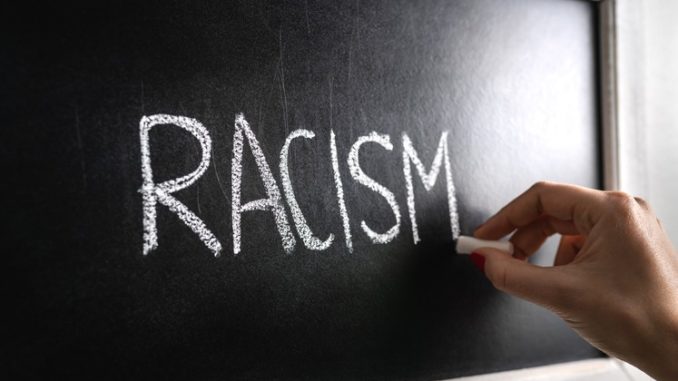
Alarming new research shows that racism against NHS staff is increasing, with 70% of surveyed Trusts reporting a rise in such abuse
This is an edited version of an article first published by ITV
We all know it’s against the law to discriminate against someone based on their race, age, gender, sexual orientation or religion or, indeed, to subject anyone to a hate crime. We know this, don’t we? So why is it that discrimination and hate crimes still occur – and why do people still tolerate it?
I ask because ITV News has done some research on racism in the NHS and the results are somewhat worrying.
We found the number of recorded racist attacks against NHS staff increased from 589 in 2013 to 1448 last year – that’s an increase of 145%. University of Derby and Burton Trust recorded the biggest rise, from 194 to 439 in 2018, and Guys and St Thomas’ in London went from none to 109.
One nurse, from the Philippines, who works in Devon, told me she is routinely asked to go home or told by the patient to go away and find an English nurse to treat them. It’s so regular she says she doesn’t notice it any more, let alone report it to the hospital. I’ve also spoken to a senior surgeon, who happens to be Indian, and has worked in the NHS for more than 20 years.
Reduced to tears
Mr Radhakrishna Shanbhag was reduced to tears when I asked how he is spoken to by patients.
He’s side-lined by them; he’s told they want a white doctor, is ignored and generally treated as if he shouldn’t be in the hospital. He said it makes him feel ‘worthless’.
It doesn’t take many anecdotes to illustrate the problem. I asked Nick Hulme, the Chief Executive of East Suffolk and North Essex Hospital Trust, what is being done to protect staff from such abuse. He was adamant that there are systems in place to record incidents of racism and that he personally encourages all staff to report everything, whether it’s racist, sexist or homophobic.
Nick Hulme would also like to deny treatment to patients who are racist, unless it was ‘life or limb’. He says there should be zero tolerance of any sort of abuse – and wants to prove he means it. The only problem is those in the medical profession have such an overwhelming sense of duty to treat patients, many might well find that hard.
Does the health secretary, Matt Hancock, agree then that we should take a zero tolerance approach? Yes – but he stops short of agreeing treatment should be denied to those who are racist; he says trusts should manage cases on an individual basis.
Lack of representation
The Equality and Human Rights Commission (EHRC) says the findings are shocking, but not surprising. Rebecca Hilsenrath, the group’s CEO, admits some of the figures could be because of better recording of incidents. Mrs Hilsenrath says much of it is down to lack of representation of black and minority ethnic (BAME) people in all industries; she says, until there is equal representation and equal pay, racist comments will continue to pervade our society.
Brexit has also had an impact, she claims, as hate crimes have increased since the referendum. “We live in an era when it seems there’s a permission for political discourse to be carried out in quite a confrontational way,” she says.
To that end the EHRC has written to political parties to ask them to consider the impact of the way they talk, since politicians are role models and the more respectful dialogue we see, the more it’s echoed in society as a whole. How much will this really effect racist patients in the health service though?
Perpetrators continue to thrive
There isn’t a single magic bullet to solve this. That’s obvious.
What there should be, though, is an intolerance for racist abuse and proper systems in place to report it; until this happens, the perpetrators of racist comments will continue to thrive and get away with it.
Kevin McGee, chief executive of Blackpool Teaching Hospitals NHS Foundation trust, said, “The Trust does not condone prejudice in any form. It is unacceptable and has no place within the NHS.
“Our board is working with our black and minority ethnic staff to prevent discrimination and, to this, end we have approached the national BAME lead to work with the trust and our staff to support our engagement strategy and challenge any issues that may stand in the way.”
Don’t forget to follow us on Twitter, or connect with us on LinkedIn!

Be the first to comment